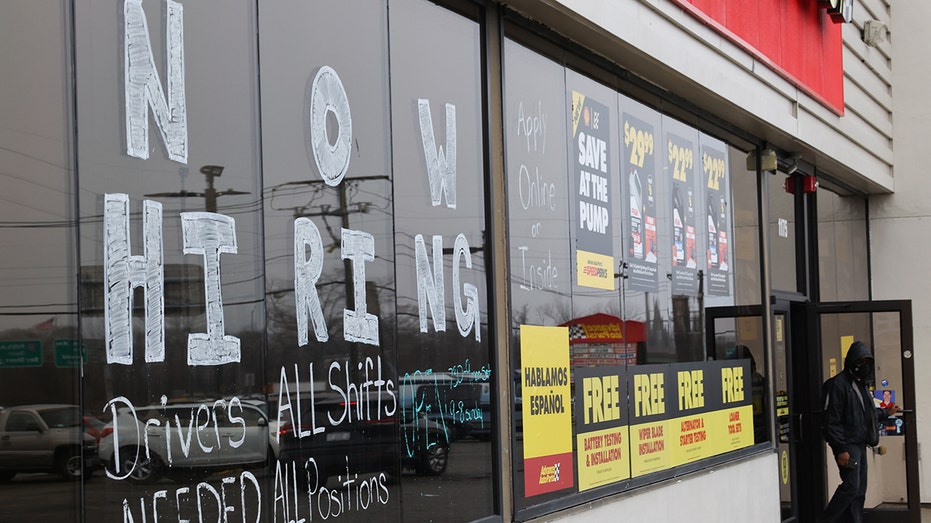Why are there still so many Americans quitting their jobs?
Expert says shortages in the labor market are likely to persist for a long time
May jobs reports unleashes concern over the future of inflation as Friday markets show big sell-off
Strategic Funds co-managing director Marc Lopresti and CEO of Recruiting.com Evan Sohn unpack the state of the economy and its impact on hiring following strong May jobs reports.
The latest jobs data shows the Great Resignation brought on by the pandemic is still ongoing, with a near-record high of 4.4 million Americans quitting in April despite growing recession fears.
One expert explains the reasoning behind the continued reshuffling, and warns that shortages in the labor market are likely to persist for a long time.

Workers exit the Marathon Galveston Bay Refinery on May 10, 2022, in Texas City, Texas. (Brandon Bell/Getty Images / Getty Images)
Julie Bauke, founder and chief career strategist with The Bauke Group, has a good handle on the perspective from both sides of the desk when it comes to employer-employee relationships after 25 years working in the sphere, and says the changes companies are seeing now are multilayered but largely inevitable – COVID just sped them up.
"There's a mismatch between people and their skills and what they want to do, with the work that needs to be done," Bauke told FOX Business, pointing to the many older, seasoned workers who retired early due to the pandemic.
Those so-called "boomers" left new generations of workers in their place who are refusing to fall in line the way their parents and grandparents did.
PHILADELPHIA-AREA TRANSIT COPS TO GET BIG PAY RAISE AMID OFFICER SHORTAGE
"On top of that," she continued, "you've got this demand that greatly outstrips the supply, which gives the younger generation leverage – and they're not afraid to use it."

Lesley Williams quit her bookkeeping job at a lumber company in 2020 to care for her grandchildren and mother-in-law. (Lindsey Wasson for The Washington Post via Getty Images / Getty Images)
Bauke says the high quit rates now are due in part to the impatience of workers and employers alike. Some workers wooed by salary increases have been too quick to jump ship and later regretted the move, while companies too eager to get bodies in the door to fill positions have not been choosey enough in their hiring.
A slowdown in the economy will likely rein in that impatience from both sides, with workers willing to stick with a job out of concern for not finding another one and employers easing off hiring to cut costs.
SOLID MAY JOB GROWTH SEALS THE DEAL FOR MORE MEGA-SIZED FED RATE HIKES
But even if a recession hits, Bauke says, the exodus of boomers from the workplace coupled with a younger generation more willing and able to start their own online business than work for "the man" means shortages will persist.

A large "Now Hiring" advertisement is posted on the windows of the Advance Auto Parts store in Bay Shore, New York on March 24, 2022. (Steve Pfost/Newsday RM via Getty Images / Getty Images)
"The number of people out there looking for traditional jobs is still less than the amount needed," she explained. "I do not see that changing for a long time, frankly, if ever. Because you can't all of a sudden birth a bunch of adults to take the job."
Bauke advises companies to not only be diligent in selecting candidates, but to treat current employees like the adults that they are in order to keep them – which has been difficult for some firms to do in this new climate where remote work and other flexibilities attract more candidates.
GET FOX BUSINESS ON THE GO BY CLICKING HERE
"The first thing you have to do is a novel concept called actually talk to your people and ask them what they want," Bauke says, adding that senior leadership can often be oblivious to workers' needs. "You have to engage, you've got to go from the top down to collaborate and communicate with your people and get them involved in your solution."
She reiterated, "Your answers are among your people. They're among the people doing the work."





















